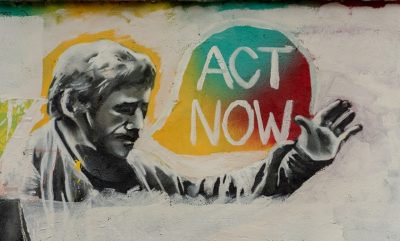Today I’m thinking about the responses I see to the corona virus #stayathomechallenge #shelterinplace #lockdown. Someone on Twitter asked, will this pandemic make us better, worse or not change us at all.
The way I see the world, how we come out of this depends on what lessons we learn and whether we use them to change our social systems and culture.
The changes after the September 11 terrorist attacks led us into a series of seemingly unending wars, searches & restrictions at airports, and more surveillance of citizens. The 2008 financial crisis resulted in far more renters than homeowners after bankruptcies, more extreme inequality and political polarization. It doesn’t seem that our fundamental ways of life changed for the better with either of these crises.

Photo by Rod Long at Unsplash
During this corona virus crisis, I see many people stepping up, offering assistance to others. Some are paying contract workers to help them make it through, checking up on elderly and ill neighbors, making trips to the grocery store or drug store for people who are more at risk, even collecting or making masks and ventilator parts to help hospitals running short on these necessary supplies.
At the same time, I see some people hoarding, price gouging, buying guns, fighting and ignoring social distancing orders—even flaunting their willingness to expose others to a potentially lethal virus.
Most of us are probably just doing our best to comply with public health advice to protect ourselves and others. But human nature is always going to have this mix—both within us and among us. The balance lies in what our culture expects and allows.
Altruism, compassion and the desire to do something meaningful, something that’s greater than ourselves are as much a part of human nature as fear, anger, greed and self-centeredness. But American culture highlights the latter. The news dwells on it, and it’s what much of our entertainment is based on. On any news day, it’s murder, bombings, hate, deception, child abuse, all the human depravity. Sure, we need to know about threats. It helps us survive. But when that’s all there is, and when crime, violence and brutality are the basis of entertainment, we’ve gone way beyond the need to know for survival. In many shows, movies, and games the violence is gratuitous and extreme. Then there’s the greed. The main character in the 1987 movie Wall Street proclaiming “greed is good” became an American mantra along with Ayn Rand’s philosophy of maximizing your own happiness and goals. These characteristics are strong enough in American culture that altruism, compassion and inspiration are often viewed as sentimental, ineffectual or weak.
Artists, musicians, writers, photographers, filmmakers, journalists, producers and agents, you create our cultural stories and the images that tell us who we are and show us our capabilities and possibilities. You produce the food for our spirit. Stories need tension, but physical conflict is a lazy default. Why not draw out the drama, the sacrifice, the personal and moral dilemmas and decisions to do the right thing—especially when it contradicts cultural expectations? Why not show us the complexity and complications of life? Why not dream?
For the rest of us, we either support or undermine these characteristics of our culture through the choices we make. It’s our power. What shows do you watch? What books do you buy? What music do you listen to? What do you share on social media? What do you talk about?
Maybe we’re in a turnaround phase on this one. Last year, one of the most successful films was A Beautiful Day in the Neighborhood. I see a lot of social media praise for people like Ambassador Marie Yovanovitch, David Holmes and Colonel Vindman, people who told the truth in the face of pressure to keep quiet. I’m seeing many thank you messages to store clerks, healthcare workers, police and firefighters and others who are keeping the infrastructure that supports our basic needs running while the rest of us are told to stay home to minimize the pandemic.
Already, the U.S. president is getting antsy, wanting people to go back to work to make sure the economy keeps humming along. Real change takes time, time for reflection, time to adjust. But it can happen in an instant when the time is right. When the old way has worn itself out. If we no longer prop it up, a new way can come to life.
